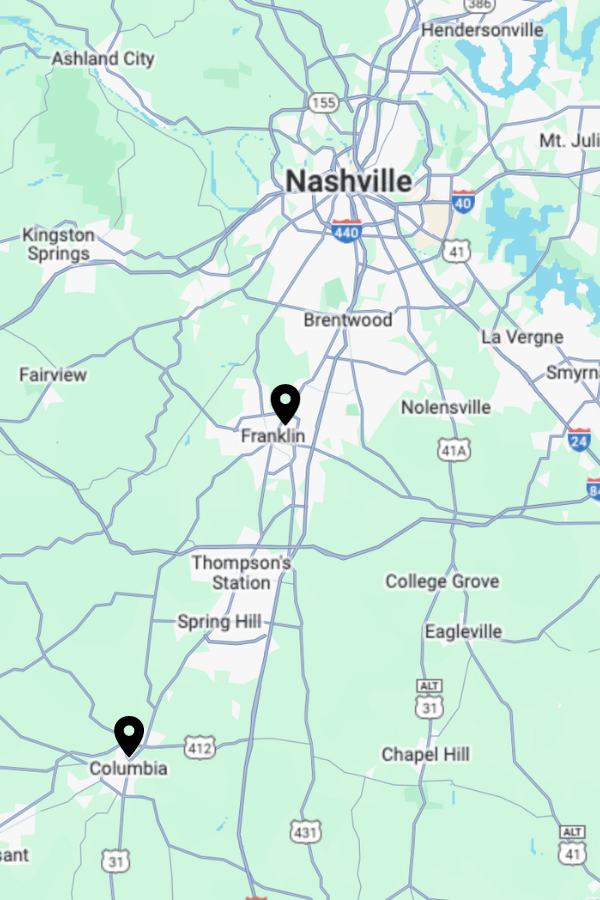Seeking therapy and counseling for drug and alcohol addiction near you? Discover the vital role therapy plays in addiction treatment, including the various approaches available and how they can support recovery. Explore local resources and find the help you need to get going on the path to sobriety and wellness.
Apex Drug and Alcohol Addiction Recovery Center specializes in rehab treatment for substance abuse and dual diagnosis, addressing concurrent mental health and addiction issues. Our approach combines medical, psychological, and holistic methods to ensure comprehensive care. Our custom-made programs foster recovery, resilience, and a return to wellness for those grappling with these complex challenges.

What is Therapy for Substance Abuse?
Therapy for substance abuse is a structured form of treatment designed to help people overcome addiction to drugs or alcohol. It involves various counseling techniques and strategies for both the psychological aspects of addiction and the underlying issues contributing to substance use. Therapy encourages people to achieve and maintain sobriety, improve mental health, and enhance overall quality of life.
Therapeutic interventions for substance abuse may include individual substance misuse counseling, group substance use disorder therapy, family therapy, and other specialized forms of treatment such as cognitive-behavioral therapy (CBT) for addiction, motivational interviewing, and dialectical behavior therapy (DBT). These tailored therapies focus on changing destructive patterns of thought and behavior, developing coping strategies, and building a supportive network.
Free Addiction Assessment
Schedule a free, confidential assessment with a licensed clinician. Apex Recovery can check your insurance coverage levels for drug and alcohol addiction, and mental health treatment.
What is Addiction Counseling for Substance Abuse?
Addiction counseling for substance abuse is a specialized form of therapy to help recognize the patterns and behaviors that lead to addiction. It focuses on providing the support, tools, and strategies needed to cope with the challenges of addiction, encouraging lasting recovery. This type of counseling is pivotal in understanding personal triggers, improving emotional regulation, and fostering healthier lifestyle choices.
Addiction counselors work closely with people to style treatment plans that address the physical, emotional, and psychological aspects of addiction. Addiction support counseling sessions may occur in individual, group, or family settings, offering a comprehensive approach that targets the addiction itself and seeks to heal and strengthen relationships affected by substance use. Through building a trusting relationship, counselors help people navigate the path to recovery, empowering them with the confidence and skills needed for a substance-free life.
What is the Difference Between Therapy and Addiction Counseling for Substance Abuse ?
Therapy delves into broader mental health concerns beyond addiction, exploring issues like trauma or relationship dynamics. Techniques like CBT or DBT are used to promote overall well-being. Drug addiction counseling is more focused, addressing practical strategies for managing substance abuse, such as motivational interviewing and relapse prevention counseling.
Both are valuable for recovery, with therapy offering a deeper exploration and behavioral addiction counseling providing targeted support for overcoming addiction. Together, they form a comprehensive approach to tackle the multifaceted challenges of substance abuse and enable lasting recovery.
Do Addiction Treatment Centers Offer Drug and Alcohol Addiction Therapy and Counseling?
Yes, addiction treatment centers typically offer both drug and alcohol addiction therapy and counseling as part of their comprehensive treatment programs. These services are designed to address the psychological aspects of addiction, helping people understand the root causes of their substance use, develop coping strategies, and build a supportive network for recovery.
These centers combine various therapeutic approaches, including individual therapy, group counseling, and family therapy sessions, to provide a holistic treatment experience. Through evidence-based methodologies like cognitive-behavioral therapy (CBT), motivational interviewing, and relapse prevention techniques, patients receive personalized care tailored to their specific necessities.

- Please complete and send the form below.
- One of our staff members will contact your insurer to check your coverage.
- We will contact you promptly with the results and to discuss the next steps.
Insurance Verification
"*" indicates required fields
How to Find Drug and Alcohol Addiction Therapy and Counseling Near Me
Looking for “drug and alcohol addiction therapy and addiction counseling near me?” For those in Tennessee, Apex offers exceptional treatment centers. To explore your options and find support for your recovery journey, call Apex at (877) 881-2689 or contact us online. Our knowledgeable team can help you take the first step towards recovery.
Free Addiction Assessment
Schedule a free, confidential assessment with a licensed clinician. Apex Recovery can check your insurance coverage levels for drug and alcohol addiction, and mental health treatment.

Treatment Centers in Tennessee
Apex Addiction Recovery Center in Tennessee has two facilities in the state. These centers provide a tranquil backdrop for recovery. The Franklin center is situated at 4601 Carothers Pkwy STE 250A, Franklin, TN 37067, while the Columbia facility can be found at 2710 Trotwood Ave Suite A, Columbia, TN 38401. They offer a range of programs in welcoming, supportive environments.
Apex Recovery Franklin
4601 Carothers Pkwy STE 250A
Franklin, TN 37067
Apex Recovery Columbia
2710 Trotwood Ave STE A & B
Columbia, TN 38401

Types of Substance Abuse Counseling & Therapy Programs
Substance abuse counseling and therapy programs offer a multifaceted approach to addiction recovery, incorporating various therapeutic modalities to address the complex nature of substance use disorders. From individual counseling sessions that provide personalized support to group therapy settings fostering peer connection, these programs help people with unique and diverse needs.
Family therapy engages loved ones in the recovery journey, while evidence-based approaches like Cognitive Behavioral Therapy (CBT) and Dialectical Behavior Therapy (DBT) target behavioral change. Motivational Interviewing (MI) boosts readiness for change, while psychotherapy explores deeper emotional issues. Art therapy offers creative expression, and holistic therapy promotes overall well-being. Each modality plays a crucial role in supporting people on their path to sobriety and wellness.
Individual Therapy for Addiction Treatment
Apex Recovery offers individual therapy sessions at all levels of care with trained masters-level clinicians. Psychotherapy is used as an adjunct therapy to treat all forms of mental illness, change negative thought patterns, and help clients set and reach goals related to their treatment and recovery.
Apex Recovery follows best practices in developing individual treatment plans for all of our patients. Treatment plans are as unique as the individuals themselves, and our therapists have decades of experience in designing addiction therapy programs that cater to each patient’s specific needs. Our individual treatment plans are used for initial and end-of-treatment assessments and clearly outline the goals, anticipated timeframe, and risks to effective treatment and recovery.
Millions of individuals across the nation enter rehabilitation every year. Even though all addictions have similar characteristics and behaviors, there are differences in how they affect the user. Those who abuse alcohol have different health issues from those who abuse cocaine or meth, for example. No two users are the same.
Even though they can have some similar reasons or factors that brought them to addiction, the combination of those reasons, factors, and their living conditions is unique. Some people suffer from comorbid mental illnesses, some have a family history of addiction, while others slowly slipped into addiction after prolonged use of alcohol or a drug. There are many more emotional, mental, and social factors at play, but there’s generally a mix of mutually interactive factors involved.
In any case, acknowledging that every client is specific is a precondition for maximizing the success of the rehabilitation process. Apex Recovery assigns every client a treatment coordinator and the individual treatment plans are designed through the collaboration of our clinical interdisciplinary team. The plans are intended to systematize the process, direct it and bring into clear focus what is important.
Our treatments make use of supervised medication therapy, counseling, psychotherapy, nutrition programs, recreation plans and outings, holistic healing, alternative treatments such as acupressure, and alternative therapies like art and music. Each of these approaches brings its own benefits to the recovery process and the positive effects of one approach to improve the results of others.
Group Therapy for Addiction Treatment
Group therapy is a proven technique for helping individuals struggling with addiction. While addressing personal and painful experiences in a group setting may feel scary or provoke anxiety, it is a helpful aspect of recovery. Group therapy provides an opportunity to share openly and connect with others with similar struggles, helping participants feel connected and develop close and meaningful relationships.
The group context assists clients in developing communication skills, setting boundaries, and improving social skills through the support of our therapists. With the guidance and directive of Apex Recovery San Diego’s clinically trained staff, participants are encouraged to provide feedback to one another, which is a critical step in building insight and motivation.
Family Therapy for Addiction Treatment
When it comes to addiction family therapy for addiction treatment typically is not the only person affected by his or her drug or alcohol use or other addictive behaviors. There’s often a spouse, parents, siblings, and/or children involved who feel the pain of the addiction just as much as the client. We understand addiction from both sides of the coin, having helped hundreds of clients and their families recover from the destruction of addiction. We utilize a patient-centered approach that includes counseling with family members, both during and post-treatment, to ensure a safe, supportive environment throughout the recovery process.
Family therapy combines a number of therapeutic approaches and has two main goals. The first is to use the family’s strengths to support the individual’s life in abstinence. The second is to relieve the impact the individual’s addictive behavior has had on the family.
Family therapy treats the family as a unit and the individual as a component of that system. The sessions can be done with the whole family present or subsets of it, or they can be done with separate individuals. The point of interest of family therapy in the alcohol and drug rehabilitation process is the complex relationships between the members.
Family therapy assists the family in making changes within the relationships, the members, and the overall environment to aid the process of coping with substance abuse. It also guides the other members in defining their own goals, because “better functioning” is not a clear enough goal. With family therapy during rehabilitation and aftercare, members are better able to understand the changes. And, finally, because everything is “out in the open” the user doesn’t feel the rest of the family is ganging up on them.
Cognitive Behavioral Therapy (CBT) for Addiction Treatment
Apex Recovery utilizes Cognitive Behavioral Therapy (CBT) as part of our integrative treatment approach. We use CBT to help patients change their thinking patterns and behaviors as a means to treat both addiction and mental illness. Our dual diagnosis treatment is a very hands-on approach that allows our therapists to work closely with each patient to improve his or her behavior and general outlook. We’ve found CBT to be successful in combating a number of mental illnesses, including anxiety and depression, as well as substance abuse problems.
The way we perceive the world around us is our reality. We behave in line with our thoughts and that’s how our thoughts shape our life. For example, we may never learn how to swim if we are afraid that an animal or a shark would attack us at some point or if we believe we would drown. We think water is dangerous and we decide not to learn how to swim. Sometimes, it can be more serious than that. If we feel and think that we are worthless, we may decide to alleviate the pain and discomfort through alcohol or drugs, as depressed individuals do. For the depressed, their reality is that they are worthless, regardless of how many times others tell them differently.
If we agree that our behavior is based on our thoughts then there is good news—by changing our thoughts, we can change the behavior. This is what cognitive behavior therapy posits.
Cognition is how we think. It includes perceptions, concentration, memory, and language understanding—all the processes and activities that give us choices on how we will behave.
When people are suffering from mental illnesses, addictions, or comorbid disorders, their cognition is skewed. It could be the root of their disorder or its consequence. For example, alcohol and drug abuse can alter our brain chemistry and change the way we perceive the world around us. Alcohol and drugs can also impact the way we feel good and compel us to seek more of them—that way, our cognition gets perpetually sucked into a vicious circle.
There are numerous benefits to cognitive behavior therapy, which make it an excellent approach to treating a variety of addictions and mental health disorders:
- It’s not a never-ending process (Some other forms of therapy last long and need a lot of time for improvement to show, which is not the case with CBT)
- It can be done in individual and group therapy
- It’s focused on attainable goals and results
- Therapists and patients work together to develop plans to reach goals and change problematic thought patterns.
- It’s highly practical and aims to equip the patient with the skills and tools they need to reach the state they want to reach and to decide how to get there.
- It provides the patient with coping strategies for stressors and against potential relapse scenarios.
- It’s immersive and ideal for residential rehabilitation. The results reached through sessions are reinforced with homework and constant attention to the process of learning new patterns and unlearning the dysfunctional ones.
- It’s focused on logic and reality, not our perception of reality. Learning to make rational decisions informed by reality is the key that keeps the patients from relapsing into old patterns.
Dialectical Behavior Therapy (DBT) for Addiction Treatment
Our therapists incorporate dialectical behavior therapy, or DBT, to promote abstinence from drug and alcohol use and to reduce the possibility and severity of relapses. Similar to CBT, DBT helps patients develop and pursue goals that are independent of substance abuse and other out-of-control behaviors, with the ultimate goal of helping patients better deal with the everyday problems of life.
DBT is a modality of cognitive-behavioral treatment, originally developed to treat individuals with borderline personality disorder who were suicidal. Since then it has been recognized as highly successful in helping individuals with alcohol and substance addiction and those with mental health issues, like depression and post-traumatic stress disorders (PTSD).
The skills taught through DBT encompass mindfulness and aware presence in the moment; pain tolerance and acceptance without attempting to change the pain; interpersonal skills like assertiveness and the ability to say no in order to build self-respect and better relationships; emotional regulation and changing undesirable emotions.
DBT has demonstrated tremendous success in the reduction of suicides, instances of treatment dropout, and alcohol and substance abuse. It also helps deal with depression, accumulated anger, and pain and improves the overall social functioning of individuals who receive this treatment.
Apex Recovery San Diego is an alcohol and drug rehab center that has a team of highly qualified professionals who are able to deliver the best possible dialectical behavior therapy available.
Acceptance and Commitment Therapy
Apex Recovery therapists incorporate acceptance and commitment therapy or ACT (pronounced “act”) to assist our clients in developing a new way of being with emotional and psychological pain and to decrease suffering. ACT incorporates acceptance and mindfulness strategies with commitment and behavior-change strategies to help you change your approach to your problems.
ACT is a scientifically based modality and is considered a “third wave” in behavioral and cognitive therapy. It developed from research on how the human mind works, which suggested that many of the tools used to solve problems lead to increased suffering. Using ACT, our therapists assist clients in moving from suffering to full engagement with life.
Motivational Interviewing (MI) for Addiction Treatment
At Apex Recovery, we believe change is the basis of all recovery. That’s why we create an environment that’s conducive to change, starting with the way in which we work with each patient. We employ Motivational Interviewing (MI) as one step in the change process. This therapeutic approach is designed to explore the patient’s current behavior, help them articulate and understand the reasons they want to make a change and help them throughout their journey in realizing they have the power to change.
A considerable body of scientific evidence supports the view that motivational interviewing (MI) improves the chances for a successful outcome of the recovery process, even when the patients enter rehab involuntarily. MI is about empathy and synchronizing the session with the client, without imposing anything—it is often said that MI is about meeting the patient where the patient is. Even when patients have low readiness for change, this approach can be a crucial introduction for later therapy.
MI is based on the patient’s strengths and capacity to change harmful behavioral patterns. It focuses on ambivalence and fear of change as the two main barriers to a full recovery. Ambivalence is the patient’s internal struggle with respect to what they really want—their addiction could have brought them some benefits at some points in life, but at other points, they felt that it was a harmful pattern. Ambivalence is at the base of every addiction and it’s not a denial or resistance.
These are the key principles of motivational interviewing in counseling:
- Ambivalence is a natural component of addiction
- The patient and the counselor have to work together and both parties contribute
- Sessions characterized by empathy, support, and direction provide the best conditions for change
Motivational Interviewing has demonstrated the following benefits for rehabilitation therapy:
- More patients choose to follow through with the treatment program
- More patients participate actively in the treatment
- More treatments have successful outcomes
- More patients manage to avoid relapse for longer periods after the rehabilitation
The main goal of motivational interviewing is for the patient to realize the discrepancy between their current situation, their past behavior, and their hopes for the future. The counselor guides and supports the patient on the road to realizing how their behavior is different from how they would like to behave. This is done by raising awareness of the consequences of their past actions and decisions. The therapist supports the patient to realize that the costs of their behavior outweigh any perceived benefits of the addiction.
Seeking Safety for Addiction Recovery
Seeking safety is an evidence-based, present-focused counseling model that directly addresses both substance use and trauma in a safe manner that does not require a recounting of disturbing memories. Seeking safety is a relevant model to a broad range of individuals, and is effective in helping individuals attain safety from trauma and substance abuse through teaching coping skills. Learn more about our trauma-focused therapy.
The key principles of seeking safety include:
- Safety as the overarching goal (helping clients attain safety in their relationships, thinking, behavior, and emotions).
- Integrated treatment (working on both trauma and substance abuse at the same time)
- A focus on ideals to counteract the loss of ideals in both trauma and substance abuse
- Four content areas: cognitive, behavioral, interpersonal, case management
- Attention to clinician processes (clinicians’ emotional responses, self-care, etc)
Fitness for Addiction Treatment
At Apex Recovery, we believe physical well-being goes hand in hand with mental well-being to achieve successful sobriety. With that in mind, we provide each client with a gym membership during their stay in our residential boutique-style addiction treatment center.
Psychotherapy Therapy for Addiction Treatment
Psychotherapy for addiction treatment encompasses various therapeutic approaches addressing underlying psychological issues contributing to substance abuse. Through confidential sessions with a trained therapist, people explore past traumas, dysfunctional patterns, and emotional struggles that fuel addictive behaviors. Psychotherapy techniques, such as psychodynamic therapy, cognitive therapy, or humanistic therapy, help patients gain insight, develop coping skills, and cultivate self-awareness.
By addressing the root causes of addiction, psychotherapy fosters personal growth, emotional healing, and lasting recovery. It provides a supportive space for people to process emotions, challenge maladaptive beliefs, and build resilience, inspiring them to overcome addiction and live fulfilling, substance-free lives.
Art Therapy for Addiction Treatment
Art therapy involves the creation of art in order to increase awareness of self and others. This, in turn, may promote personal development, increase coping skills, and enhance cognitive function. Opportunities to explore the creative process of making art to improve physical, mental, and emotional well-being are provided.
This therapeutic approach facilitates self-discovery, reduces stress, and enhances emotional regulation. By engaging in the creative process, people in recovery can uncover and address underlying issues contributing to their addiction, promote self-esteem, and develop new coping mechanisms. Art therapy provides a tangible way to visualize progress and recovery, making it a valuable tool in the holistic treatment of substance abuse.
Holistic Therapy for Addiction Treatment
Our recovery rehabilitation center uses Holistic therapy treatment to complement traditional pharmacotherapy and psychotherapy in detoxification, rehabilitation, and extended care. Holistic healing offers diverse therapeutic options that boost the results of the traditional intervention. Apex Recovery San Diego puts a lot of effort into creating personalized recovery plans that include both traditional and holistic treatment so that every patient experiences comprehensive rehabilitation.
The way holistic healing interacts with traditional methods of boutique-style addiction treatment, such as psychotherapy and medications, is that it often “opens up” the patient and makes them more receptive to counseling, introspection, insights, and medication.
There is scientific evidence that holistic healing increases the likelihood of rehabilitation success because it focuses on improving mental and physical well-being and restoring balance. What addicts try to do through their alcohol and drug abuse is precisely that—they basically want to feel good, but the path they choose is wrong and ineffective. Holistic recovery can be just what they need.
These are the elements of our holistic healing at Apex Recovery:
- Fresh, organic meals that nourish the body as well as the mind
- Meditation sessions
- Massage and acupressure
- Music and art therapy, rock songwriting
- Recreation options such as cardio exercise, weight training, yoga, hiking
- Outings to the beach and nature

Will my Health Insurance Cover Addiction Therapy and Counseling?
Many health insurance plans provide coverage for drug addiction therapy and counseling, although the extent of coverage can vary depending on the specific plan and provider. Additionally, people under the age of 26 may be covered under their parent’s insurance plan, thanks to the Affordable Care Act, which allows young adults to remain on their parent’s health insurance until they reach this age.
Health insurance coverage for addiction treatment therapy and counseling typically includes outpatient treatment services such as individual therapy sessions, group therapy, and medication-assisted treatment. In some cases, it may also cover inpatient or residential treatment programs, detoxification services, and intensive outpatient programs (IOPs). However, the specific types of treatment covered, as well as any associated copayments, deductibles, or limitations, will depend on your specific insurance plan. At Apex Drug and Alcohol Addiction Recovery Center, we can check your insurance to get you started. See our Insurance page for all the details.
Which Health Insurance Providers Cover Addiction Counseling?
Several health insurance providers offer coverage for individualized addiction counseling, including Aetna, Blue Cross Blue Shield, Cigna, HealthSmart, Magellan, MultiPlan, TriWest, and United Healthcare. These providers often include addiction treatment services as part of their behavioral health benefits.
Apex Alcohol and Drug Addiction Recovery Center is a treatment facility that is in-network with and accepts insurance from these providers. This means that people seeking addiction counseling at Apex can utilize their insurance benefits to cover a portion or all of the treatment costs, depending on their specific plan. Utilizing in-network providers can help minimize out-of-pocket expenses and streamline the insurance billing process, making addiction counseling more accessible to those in need.

What are the Benefits of a Private Inpatient Rehab Center?
Private inpatient rehab centers offer a range of benefits, including personalized treatment plans for individual needs, a supportive environment conducive to recovery, and access to comprehensive medical and therapeutic services. With a focus on privacy and confidentiality, these centers provide a secluded setting where people can focus solely on their recovery without external distractions.
Additionally, private facilities often offer luxurious amenities, such as private rooms, gourmet meals, and recreational activities, enhancing the overall treatment experience. The intensive nature of inpatient care allows for round-the-clock supervision and support, ensuring a higher level of accountability and a greater chance of long-term success in overcoming addiction.
How Much Does Drug and Alcohol Therapy and Counseling Cost?
The cost of drug and alcohol therapy varies widely depending on factors like the type of program and therapist qualifications. Outpatient sessions typically range from $50 to $150 per session, while inpatient rehab can cost $5,000 to $30,000 per month. Private therapy may cost $75 to $200 per hour, with group sessions often cheaper.
Some facilities – like Apex Addiction Recovery Center – offer financial assistance or payment plans to make treatment more accessible, emphasizing the importance of investing in one’s health for long-term recovery.
How Does Drug and Alcohol Addiction Counseling Fit in with a Recovery Program?
Drug and alcohol addiction counseling plays a crucial role in a comprehensive recovery program by providing ongoing support, guidance, and tools for people striving to maintain sobriety. Here’s how it fits into the recovery process:
- Continued Therapy: Continued therapy sessions help people dig deeper into underlying issues contributing to addiction, address relapse triggers, and develop healthy coping strategies. Therapists provide personalized support tailored to your evolving needs, promoting emotional healing and personal growth.
- Aftercare Programs: Aftercare programs, such as outpatient counseling or transitional housing, offer structured support as people transition back to their daily lives after completing primary treatment. These programs reinforce skills learned in rehab, provide accountability, and offer a safety net during the early stages of recovery.
- Support Group Participation: Engaging in support groups like Alcoholics Anonymous (AA) or SMART Recovery fosters a sense of community and provides peer support from others who understand the challenges of addiction. Group members share experiences, offer encouragement, and provide valuable insights into maintaining sobriety.
- Lifestyle Changes: Addiction counseling helps people identify and implement lifestyle changes conducive to recovery, such as adopting healthier habits, improving relationships, and finding meaningful activities to replace substance use. Counselors assist in setting achievable goals and navigating challenges encountered during the process of change.
- Continued Monitoring: Regular check-ins with counselors or support groups allow for ongoing monitoring of progress and adjustment of treatment plans as needed. This accountability helps you stay on track with your recovery goals and address any emerging issues promptly.
- Integration into Daily Life: Addiction counseling supports the integration of recovery principles and skills into daily life, allowing you to navigate triggers, manage stressors, and make informed decisions that support sobriety. Counselors provide guidance on navigating real-world challenges while maintaining a commitment to recovery.
Overall, drug and alcohol addiction counseling is an essential component of a recovery program, providing ongoing support, education, and resources to help you build a fulfilling life free from substance abuse. Contact us at Apex Substance Addiction Recovery Center today. Call us at (877) 881-2689.

Stats on Drug and Alcohol Abuse and Therapy
- 1.4 million males aged 12+ received alcohol use treatment in 2022
- 791,00 females aged 12+ received alcohol use treatment in 2022
- 54,000 youths (12-17) who had AUD received treatment
- 50% of people aged 12+ have used illicit drugs
- 13.5% of Americans 12 and older used illicit drugs in the past month
- SUDs affect over 20 million Americans
- The number of people receiving Medication-Assisted Treatment increased by 13%
- 392,000 Americans sought treatment for substance abuse
- Only 1.6% of young adults (18-25 years old) who needed SUD treatment received it
- 70 million adults in the U.S perceived they had a substance use or mental health problem
- 20.9 million adults considered themselves to be in recovery from drug or alcohol use problem
- 38.8 million adults considered themselves to be in recovery from a mental health problem
How to Find Drug and Alcohol Counseling and Therapy Options
Discovering drug and alcohol counseling and therapy options in your vicinity involves a combination of research, outreach, and leveraging networks. Here’s a guide to finding the support you need:
- Start with a Web Search: Initiate your quest by looking up “addiction therapy near me” or “therapy for substance abuse in [your location]” on search engines. This simple step can yield a variety of nearby treatment options.
- Explore Online Directories: Delve into online directories that list conveniently located addiction treatment services. These platforms often allow for searches by therapy type or location, making it easier to find what you need.
- Consult Healthcare Professionals: Get in touch with local healthcare providers, such as doctors or mental health clinics. Even if they don’t offer addiction services directly, they can often refer you to the nearest reputable providers.
- Ask for Referrals: Your primary care doctor, a mental health professional, or members of support groups might have recommendations for trusted therapy and counseling services in the neighborhood.
- Inquire with Your Insurance: Your health insurance provider can inform you about your coverage for addiction therapy and offer a list of in-network options.
- Join Support Groups: Participation in groups like Alcoholics Anonymous (AA) or Narcotics Anonymous (NA) can connect you with peers who may have suggestions for therapy and counseling resources.
- Utilize Helplines: Addiction helplines and hotlines are valuable resources for finding support and treatment options close by.
- Reach Out to Mental Health Organizations: Local organizations focused on addiction treatment can offer insight into available therapy and counseling services.
